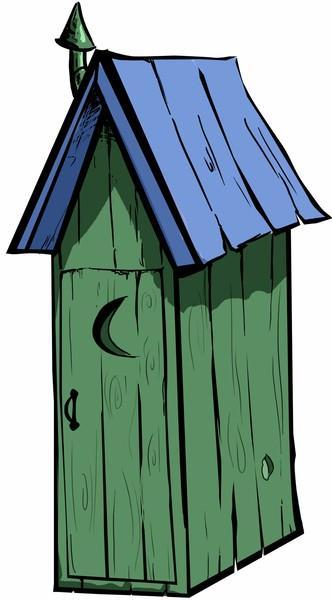What started out as a small film festival hosted by members of a University club has turned, over the six years since its inception, into one of the main forums in Louisiana in which independent filmmakers can display their work.
The Outhouse Film Festival began in the spring of 2000 when Mark Landry, an LSU alumnus, decided to start a film festival for local, national and even international filmmakers, sponsored by the Cinema Club he had recently started.
This year’s festival is April 8 through 10, free and open to the public, and will be the biggest so far. In fact, an extra night of screenings was added to allow even more films to be shown.
Matt Dolney, who handles public relations for both the Cinema Club and Outhouse, said Landry had a saying describing the name of the festival.
“At the time, Mark gave a famous quote,” Dolney said. “He said, ‘The reason we should call it Outhouse is because people in this city feel that’s where art belongs, especially film.’”
Dolney said when the club and festival were started they “basically had nothing.”
When Landry first wanted to form the Cinema Club, he approached his history of film professor, Patricia Suchy, to be the club’s adviser.
Suchy said when the club first presented their idea for a film festival she expected them to research it for a year and be ready at a later date. But, the Cinema Club had plans to do it that year.
“They had the first festival as a celebration,” Suchy said. “It was not juried and it was restricted to LSU students, staff and faculty.”
Suchy said the first Outhouse had about 100 guests and showed approximately nine hours of film submitted by several participants. She said the first festival was a test to see what kind of filmmaking community existed at the University.
“It was small … but a huge success,” Suchy said. She said the first year generated a lot of interest around campus, so the club made plans to continue the festival.
Over the past six years, the festival has grown from a one-day event to a two-and-one-half day, 200 person audience extravaganza.
Dolney said he feels lucky to have been a part of the huge growth of the movie industry in the state, thanks to the tax credit recently granted to filmmakers.
Dolney said this growth has occurred parallel to the growth of Outhouse.
Dolney said the films come from all over the country from as far away as New York and Los Angeles, as well as from local filmmakers, and in past years there have even been international entries.
Dolney said the films are screened and viewed prior to the festival by the five judges — which are made up of Cinema Club member and University faculty.
Dolney said the films are broken into categories and graded on a 10-point scale based on technical skill, aesthetic value and content. The winners of each category are given a “Silver Outhouse,” and the overall winner is given a “Golden Outhouse.”
The categories are: short comedy and short drama, which must be under 45 minutes, feature, documentary, music video, experimental and animation.
Awards also are given for other aspects, such as best cinematography.
Dolney said the awards are not the focus of the festival, however.
“It is a competition, but it’s more about [being] a forum for filmmakers,” Dolney said. “The awards are just icing on the cake.”
Button said this year there are 73 films being shown, whereas last year had less than 50.
Button credits the increase in submissions to Dolney.
Button said Dolney posted information about Outhouse on dozens of Web site calling for submissions.
Justin Parker, co-owner of Moosehead Productions, entered a film for this year’s Outhouse — a short comedy-drama entitled “Baskerville.”
Parker said the low entry fee — five dollars for a short and 15 dollars for a feature — make it possible for almost anyone to participate.
“Anyone with a camera can make a movie and submit it,” Parker said. “When Outhouse came around, we felt like we were stepping it up.”
Parker said even though he and his company have participated in Outhouse, he does not feel Baton Rouge is the best environment for filmmakers.
Parker said since there is no film school at the University and not a lot of people willing to help with a movie, it is hard to make films.
Parker said he and his partner have applied to Savannah College of Art and Design, and do not plan on returning to Baton Rouge.
“[Baton Rouge] has been a good time, it is definitely a starting point,” Parker said.
Travis Williams, owner of Hedges Pictures, has entered films into Outhouse for the past three years, and Hedges has entered a Feature, a Documentary and a Short Comedy in this year’s festival.
“It’s been a great opportunity for local filmmakers to show their work,” Williams said.
Williams said Outhouse is a low-cost alternative that allows people to show their films, even if they are on a tight budget.
Williams said Baton Rouge has been supportive and he plans to continue to make films — especially in light of the recent tax incentive program offered to the film industry in Louisiana.
Williams said there is a growing attraction to Louisiana by the film industry and as more big-budget films come here, the more independent filmmakers will reap the rewards, as well.
Festival of flick
April 7, 2005

Festival of flick



